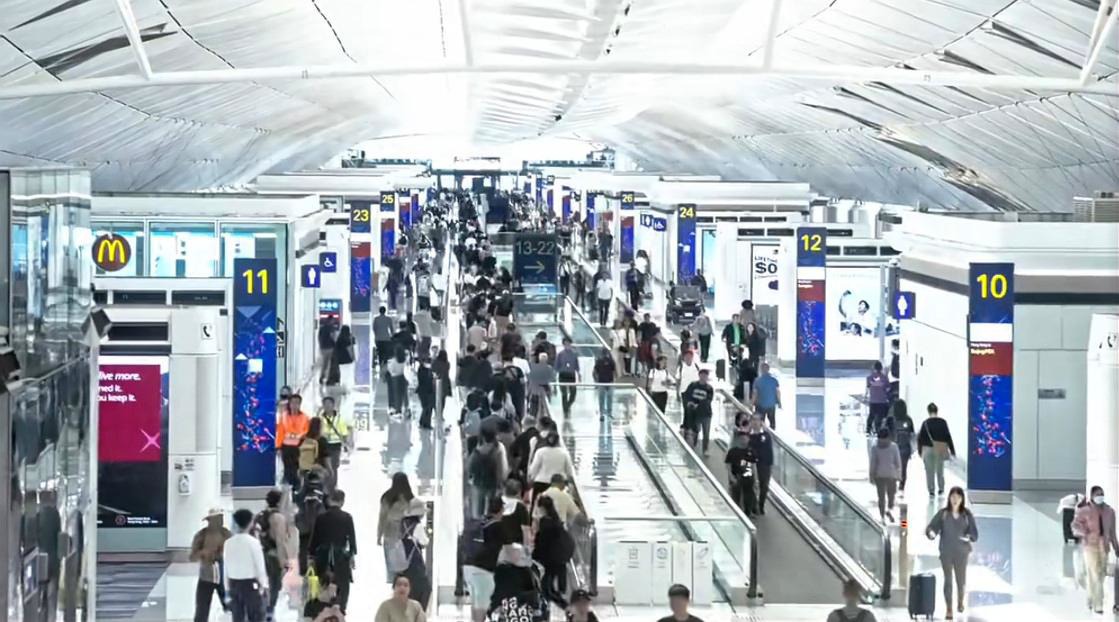SPAIN. New data released by ForwardKeys reveal that Spain’s international market is recuperating with a fall of -50.5% in traveller volumes recorded for flights booked into the country for July and August. This is compared to the same months of 2019 and based on bookings made up to 1 July.
The recovery of international travel for this period is being led by two Scandinavian countries, Sweden (+16%) and Denmark (+9%). The Netherlands is next in the table of key source markets for year-on-year variation at -3%. Meanwhile, other key markets for international travel into Spain such as Belgium (-42%) and the UK (-43%) are performing well below 2019 levels.
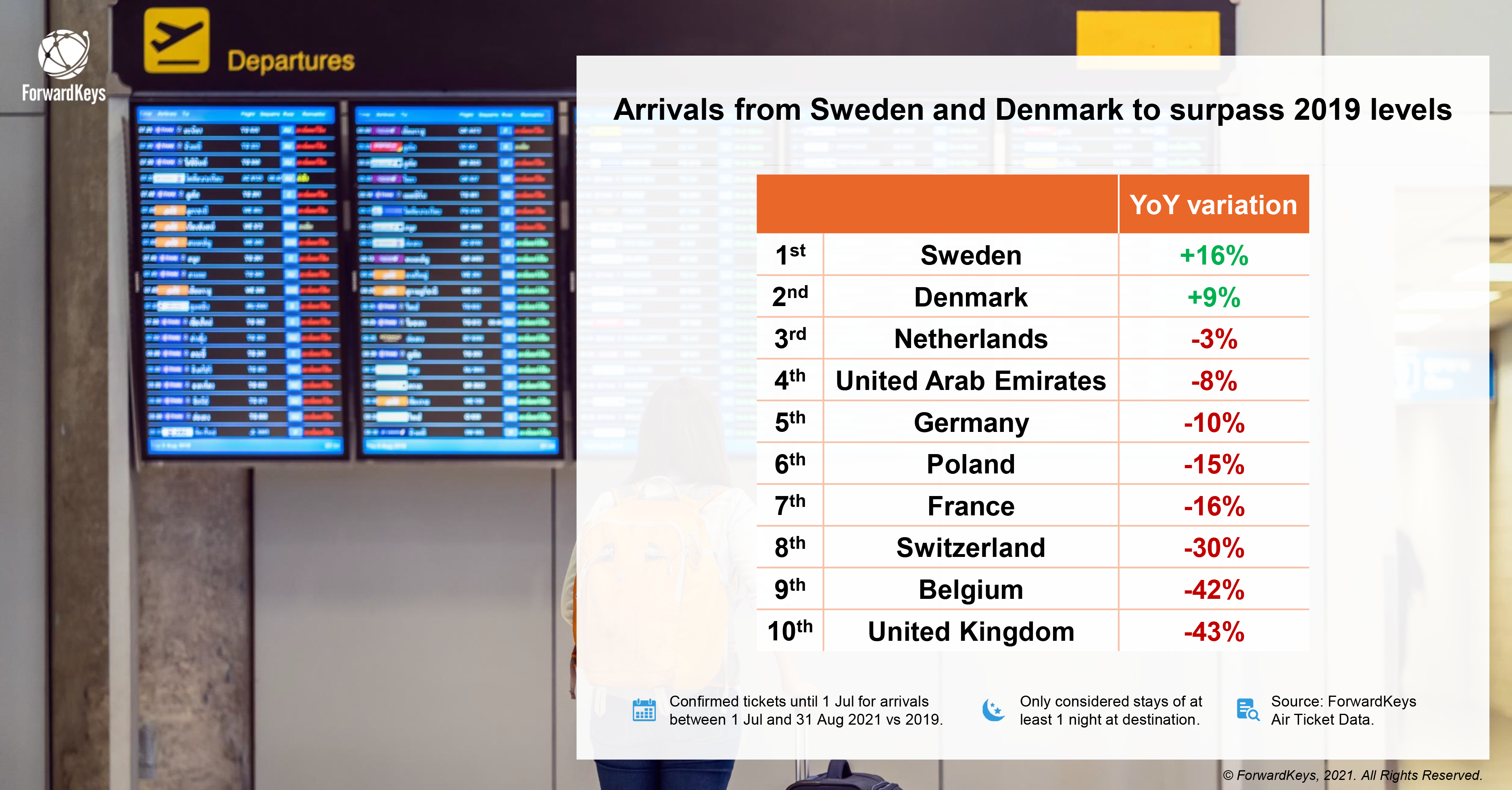
ForwardKeys Insights Expert Juan Gomez said: “Despite the many international travel restrictions currently in place, Spain is managing to attract a wider pool of travellers from non-traditional markets – something pivotal for governments and tourism boards to factor in for 2022 travel strategies and tourism plans.”
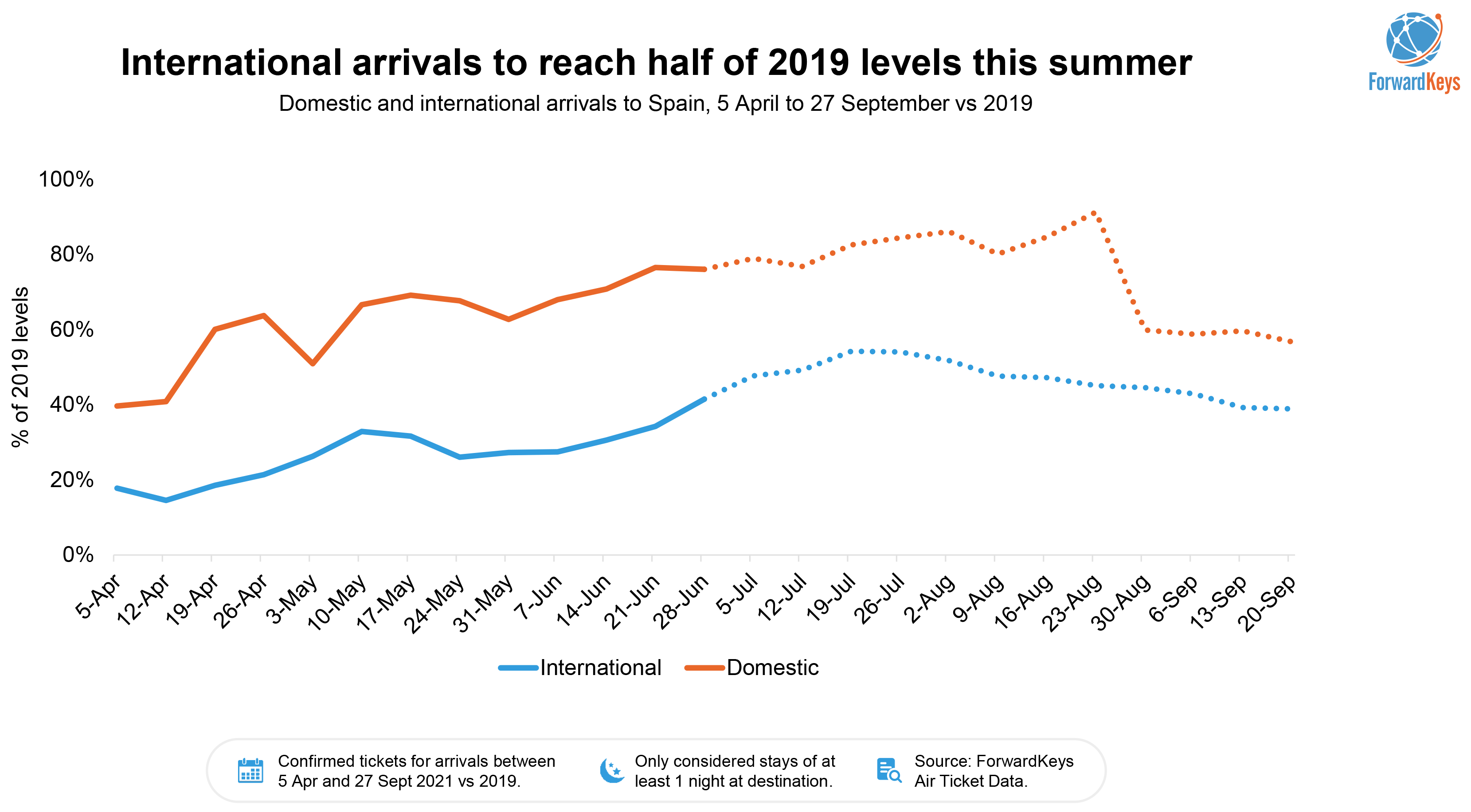
Visitors from Sweden and Denmark are predicted to exceed 2019 levels to Spain across 2021 – and they are expected to stay longer according to ForwardKeys’ data.
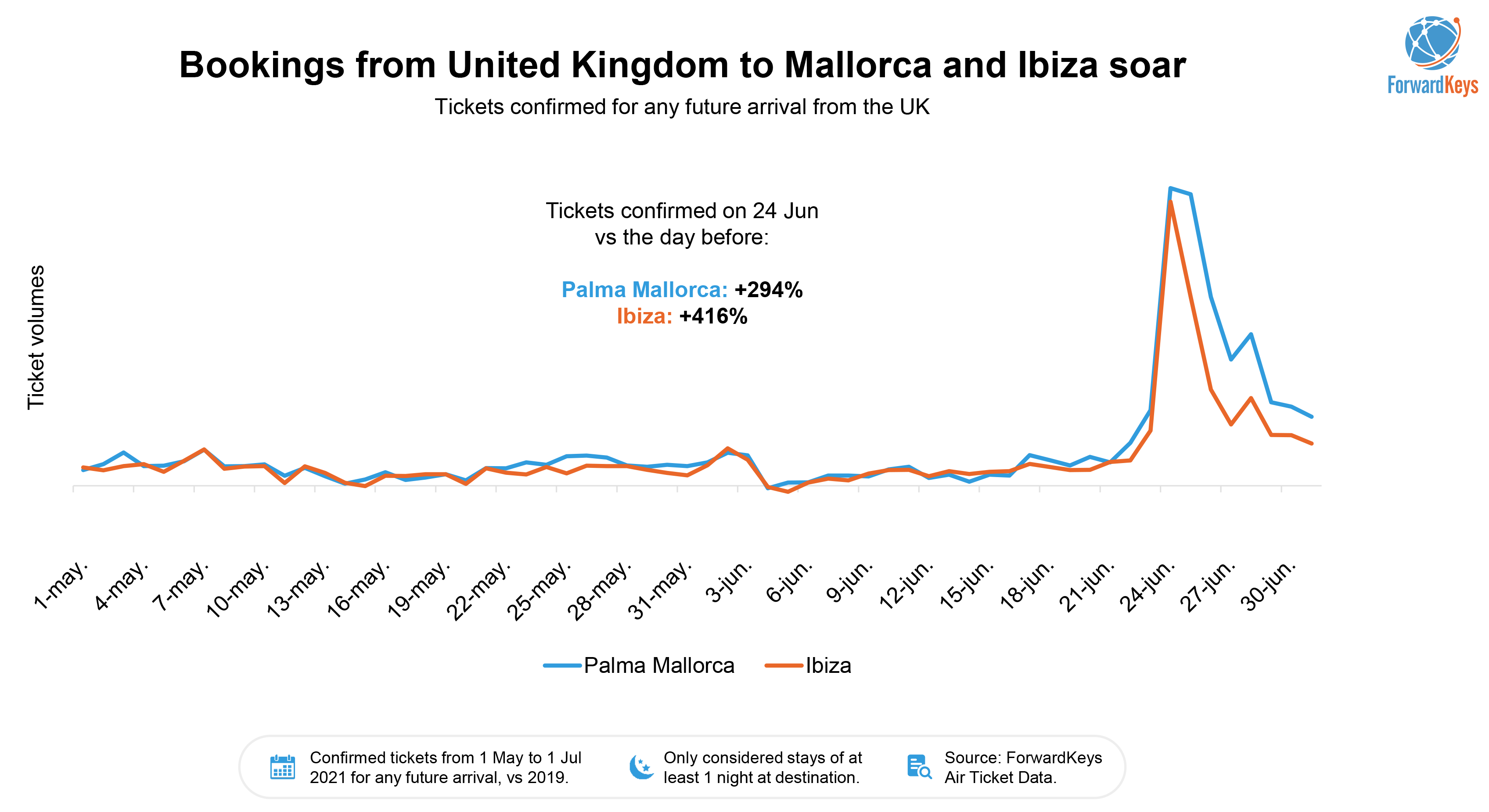
“The average length of stay has crept up from nine days to 12 days while there has also been a +5% increase in stays over 14 days for travellers from Sweden and Denmark,” said Gomez.
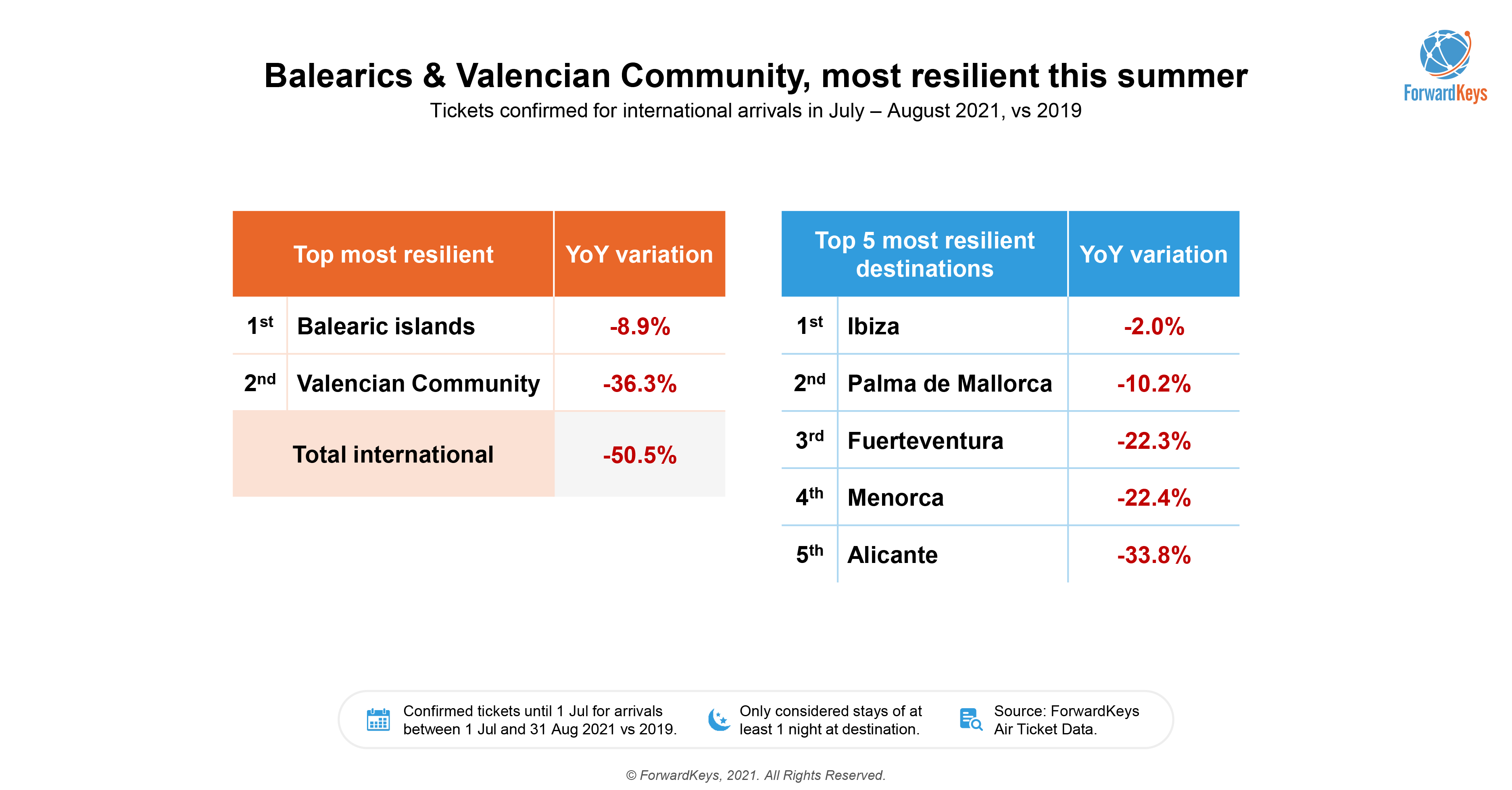
“In terms of passenger profiles, travelling couples have increased by +7% for both countries and solo travellers from Sweden have grown by +2%,” he added.
Flight connectivity is an important element in driving tourism traffic, Gomez observed: “The fact that the UAE [-8%] makes the top five most resilient source markets is an interesting one as, since 9 July, Etihad has twice-weekly flights to Malaga.
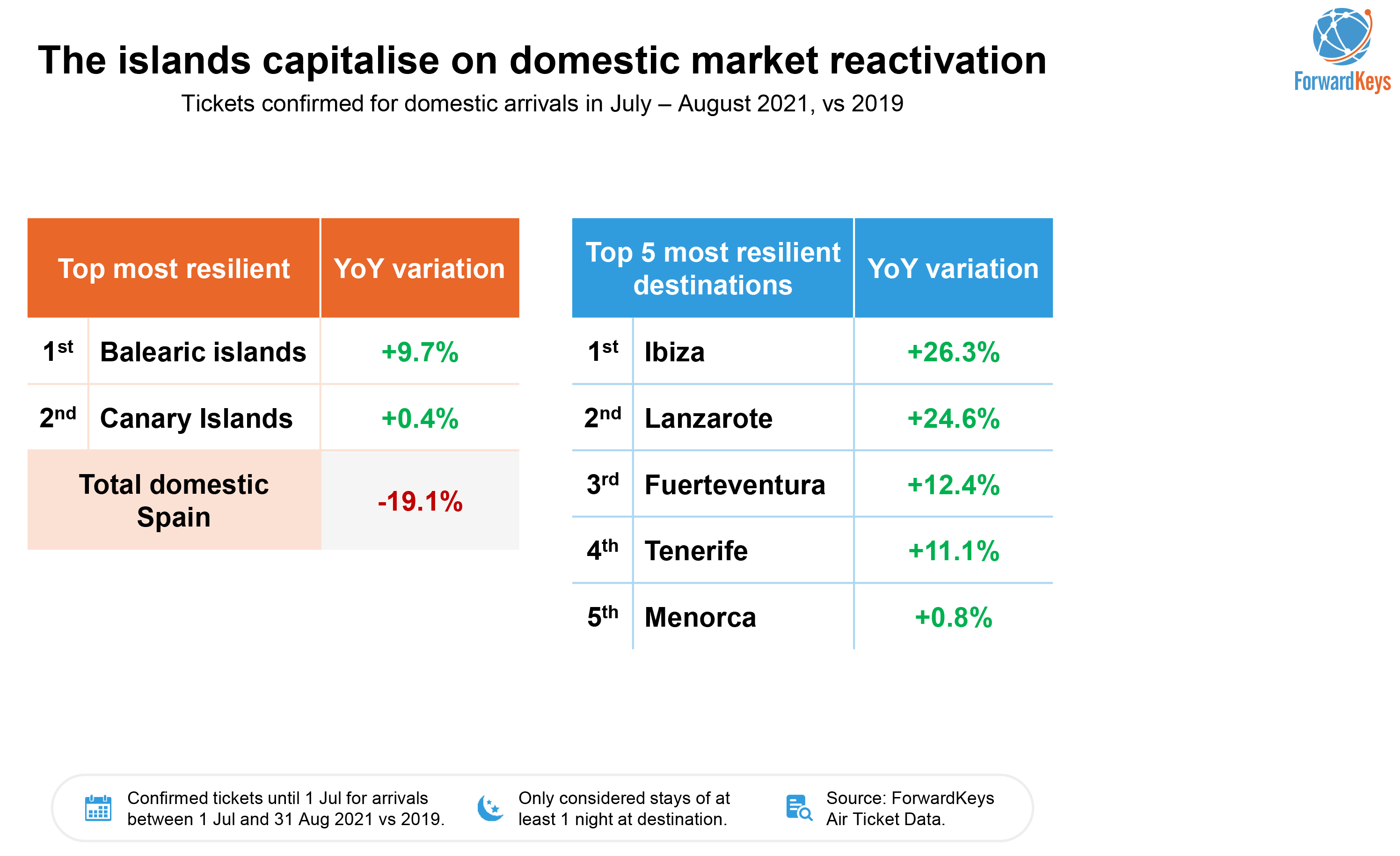
He continued: “Another example of improved flight connectivity is the Valencian Community [fourth most populous autonomous community in Spain after Andalusia, Catalonia and Madrid], which is now second most resilient for international arrivals, after the Balearic Islands, at -36.3%. Its resilience is a testament to an increase in seat capacity and airline partners.”

The top five most resilient destinations in Spain for attracting international travellers this summer are Ibiza (-2%), Palma de Mallorca (-10%), Fuerteventura (-22%), Menorca (-22%) and Alicante (-34%).
Gomez said: “With last-minute bookings being the ‘new normal’, we can only expect these figures to pick up as the demand is unleashed. We saw this once the UK green list destinations were announced with a spike of +416% in issued tickets for Ibiza on 24 June when compared with the day before.”
Meanwhile, domestic travel in Spain is proving to be much more resilient than the international market. Currently, domestic travel in Spain is -19.1% down on travellers for August and July 2021 when compared with the corresponding months of 2019.
The top-performing destinations this summer on the domestic front are the Balearic Islands, up +9.7% and the Canary Islands, up by +0.4% compared to the July-August period in 2019. The stand-out place within those popular holiday islands is Ibiza, which is up by +26% for domestic travel.









